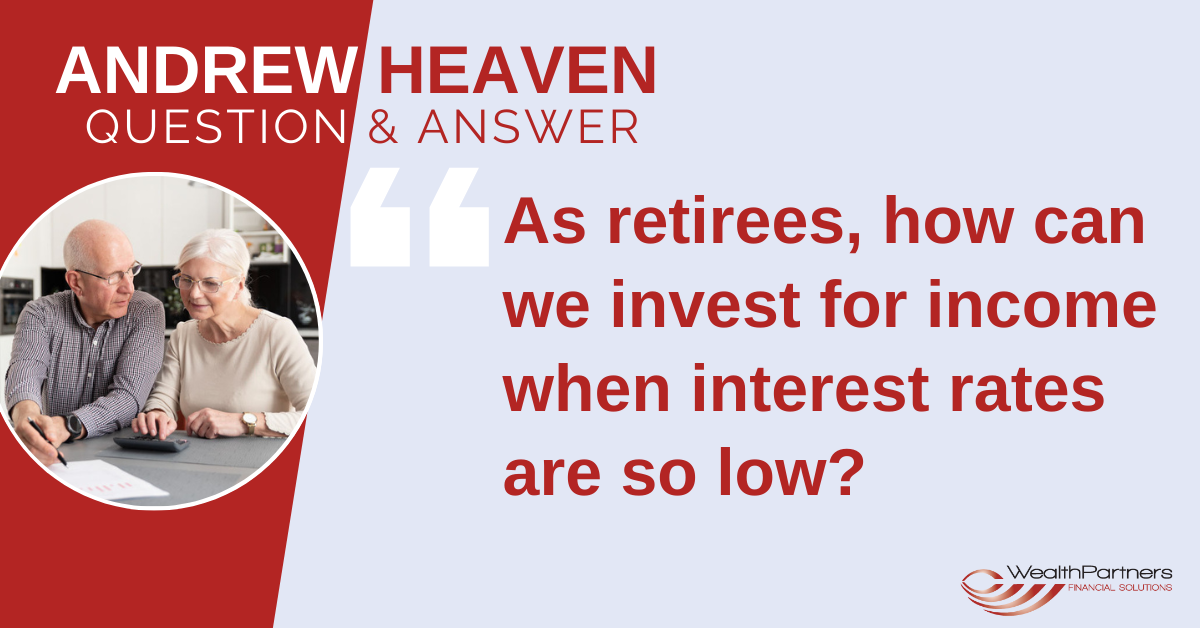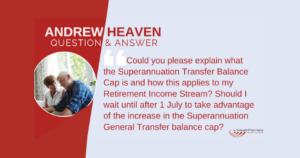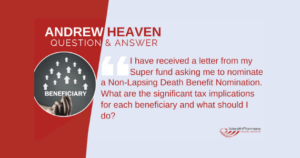Q: As retirees, how can we invest for income when interest rates are so low?
A: With Bank and Term Deposit rates at record lows, finding income generating investments is a dilemma.
If looking for bank guarantees, consider “high interest” savings accounts as an alternative to Term deposits. The rates on offer may be higher provided you meet the ongoing deposit requirements.
The pursuit of higher income or yield will drive investors to other asset classes. In order to secure additional income, retirees will need to accept more capital risk to manage income risk.
Beyond bank deposits, consider fixed interest investments such as government and corporate bonds, notes or debentures. When you invest in fixed interest, you are making a loan to the issuer in exchange for regular interest payments. You capital is returned when the investment matures. Fixed interest investments rank above shares if the issuer collapses but are not risk free. Bonds, notes or debentures can be purchased on issue direct from the issuer or traded on Fixed Interest exchanges.
Hybrid investments are traded on the ASX. They typically pay a margin over cash rates on a quarterly basis. They are not fixed interest investments and are a hybrid between fixed interest and equities. They are often complex and can be subject to capital risks just like shares in volatile times.
There are Exchange Traded funds (ETFs) available on the ASX specifically designed to generate regular income. They include funds that track Fixed Interest indices or exposure to high yielding or dividend paying shares. ETFs are subject to market risk.
Managed funds provide access to investments in a range of asset classes managed by professional fund managers. Quality managers add value and reduce risk. Management fees will vary and the investment will be subject to market risk. There are several research houses that rate managed funds against their relative benchmarks and their peers.
If investing in shares for income purposes, look to the future but be mindful of the past. Look at the forecasts for the future earnings of the company, the retained earnings of the business and the consistency of dividends declared and the payout ratio.
How you invest your portfolio should be determined by your income needs, your risk profile (how much volatility you can afford to bare), how accessible you need the funds and most importantly your investment time frame.
You should seek professional advice, at the very least to gain an opinion on the likely risks you face; both capital and income.


